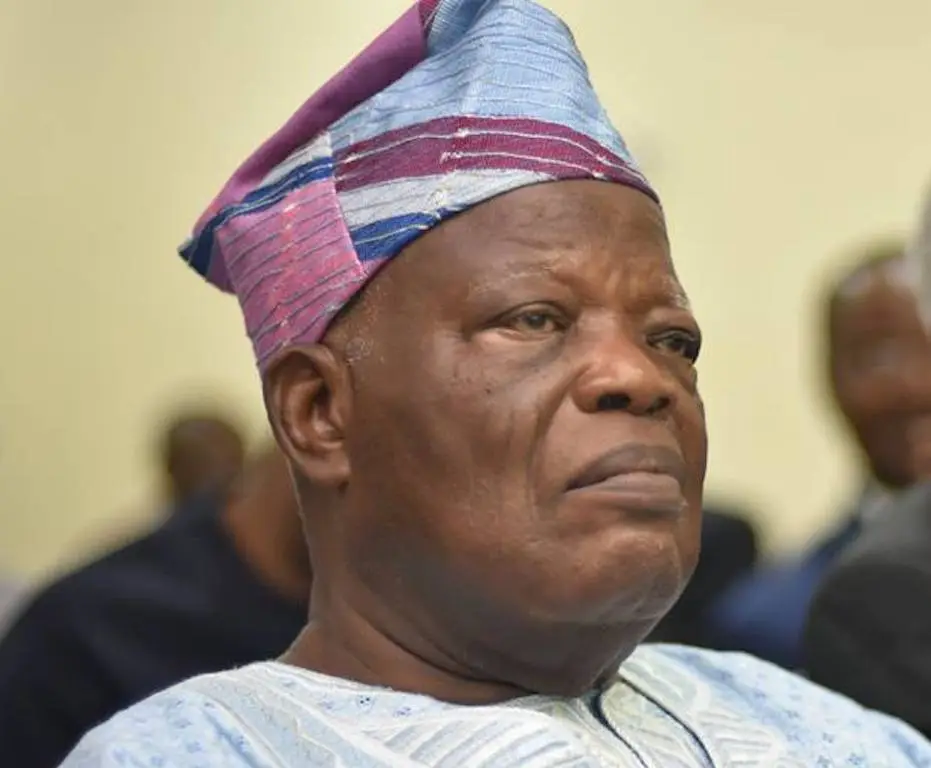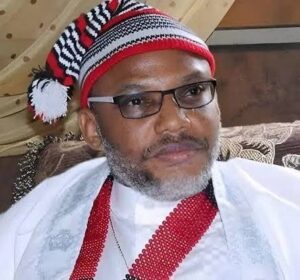
Emeritus Prof Anthony Asiwaju on Alaafin and Alaketu, Benin Republic Part 2
ALAAFIN IN COMPARATIVE YORUBA HISTORY: RESILIENCE AND ADAPTABILITY OF THE ALAKETU INSTITUTION IN CONTEMPORARY KETU, REPUBLIC OF BÉNIN, FORMER FRENCH DAHOMEY
By Emeritus Professor Anthony I. Asiwaju
- RESILIENCE AND ADAPTABILITY IN KETU
The comparative history compass comes into play when, instead of continuing to dwell on the better known Oyo story, especially as has been narrated in Professor Ṣiyan Oyeweso’s professorial inaugural lecture and even dramatised in the Command Performance of the Atiba University Students Theater Group, the contextual paradigm was deliberately shifted on the contrastively miserably little known Ketu and the institution of the Alaketu of Ketu, the well known ancient Yoruba Kingdom of more or less the same antiquity ranking and historical reputation as Old Oyo, where the critical matters of salience and adaptability of the Yoruba Obaship institution are known to have more heroically triumphed over a greater and more protracted challenges, arising largely from the colonial and post-colonial history of the territorial partition of the aforementioned truly West African extension of the Yoruba culture area and ever agonising severance of ancient Ketu and the Ketu Yoruba Sub-Group, just as with Ṣabẹ, misspelt ‘Savé’ on French maps and wider documentations and subgroup as well, from the mainstream concentration in Southwestern Nigeria, especially, the main Nigerian concentrations in immediate proximities along the border in Ogun, Oyo and Lagos States.
Unlike Oyo which fell under what Tekena Tamuno, in his book, THE EVOLUTION OF THE NIGERIAN STATE: THE SOUTHERN PHASE, 1898-1914(Longman, Ibadan History Series, 1972) has correctly characterised as the relatively ‘mild autocracy’ of British colonialism, Ketu, as Ṣabẹ and other distinctive Yoruba extended communities in today’s Bénin, former French Dahomey, unfortunately fell on the wrong side of modern history, so to speak, that of the French European colonialism, where the people, their culture and traditions, including the eternally sacred Obaship institution, have had to endure, typically, one the most excruciating and culturally interruptive European Latino colonial administrative styles, comparable only to the Portuguese, Spanish and Belgians in their respective colonial territories and enclaves in West, Central and Southern African sub-regions.
Under such a historical circumstance, the very fact of the survival and continuity of the Yoruba culture including the Obaship institution has become a more dramatically heroic case of ‘resilience and adaptability’ as, perhaps, the most defining feature of Yoruba history and culture generally, and not just of ‘The Alaafin in History and Modern Leadership’; but, in fact, that of the cultural and traditional institutional survival of the Yoruba as a whole, but, more particularly, those of extended communities that still smart under the indigenous cultural suffocation and eclipsing of the French colonial heritage.
The Ketu-Yoruba case of exceptional ‘resilience and adaptability’, especially, in its cross-border comparative context of the history of the the evolution of Yoruba Obaship institution in British colonial and post-colonial Anglophone Nigeria has been studied in some considerable details and published in English for the more curious in this great audience to access.
Witness, for example, this speaker’s own works over the decades in different contexts, both specific and general, notably, the aforementioned historic 2021 three-books-in-one Compendium of larger African Borderlands Studies’ field-defining writings of the close to six decades, namely
BRIDGING AFRICAN BOUNDARIES, inclusive of such older out-of-print pertinent publications as
– Western Yorubaland Under European Rule, 1889-1945(1976), Book One in the
Compendium, particularly Chapter 4, ‘Evooution of the Chieftaincy Institution’; and
– West African Transformations, 2001, Book Two in the Compendium, especially, Part III
(The Impacts on Indigenous Political Institutions),
– Chapters 9(‘The Alaketu of Ketu and the Onimeko of Imeko: The Changing Status of Two Yoruba Rulers Under French and British Colonialism and Independence’ in Crowder and Ikime, Eds., WEST AFRICAN CHIEFS, 1970),
– Chapter 10(‘The Indigenisation of European Colonialism: The Processes in Yorubaland and Dahomey Since c. 1860’ in Forster, S, J. Mommsen and R.Robinson, Eds., BISMARCK, EUROPE AND AFRICA: THE BERLIN AFRICA CONFERENCE…AND THE ONSET OF PARTITION, Oxford University Press, 1988) and
– Chapter 11 ((‘Political Motivation and Oral Historical Traditions in Africa: the Case of Yoruba Beaded Crowns, 1900-1960’, in Africa – Quarterly Journal of International Africa Institute, IAI, Vol. 46, No.2, 1976);
These and other works, such as Parrinder, E. G, THE STORY OF KETU: AN ANCIENT YORUBA KINGDOM, Third Edition, Foreword by A. I. Asiwaju, African University Instite, Imeko, 2005, First Published, Ibadan University Press 1956 and Asiwaju, A. I., AN AFRICAN BORDER BOOM TOWN, IMEKO SINCE C. 1780(Ibadan: BookBuilders, Afrika Editions, 2017, have been brought as a package of gift to the new Alaafin and the enrichment of the Palace Museum/Library that Professor Oyeweso has proposed for Oyo in his inaugural lecture.
- CONCLUSION
Suffice, therefore, to conclude by remarking that, if resilience and adaptability are the hallmarks of the evolution of the Alaafin institution to our own days, these twin virtues have been more especially at play with the survivalist struggle of the upholders of tradition and particularly incumbents of original Oodua-descent thrones and beaded crowns in formal French colonial territories in the wider West African homeland.
It is in this regard that I would wish to conclude with the particularly instructive example of the incumbent Alaketu of Ketu in the Republic of Bénin, Oba Adesina Akanni Aderomola Adedunloye, the 51st on one of the longest reignal list in the entire Yorubaland and the sixth Alaketu since the re-foundation of the ancient Yoruba ancestral city and the re-constitution of the kingdom, beginning with the nomination of elderly Prince Odù of the Mẹ̀ṣà Ruling House and his enthronement in late 1893 as Ọbá Ọ̀yẹ̀ngenadùnloyè, ,’Arifarasejọba-nne-i- Ketu’, that is to say, one who ascended the throne by the grace of the French; and this, in deed, was the truth, that it was on account of the French conquest of ancient Dahomey in late 1892 that the people were liberated from the Dahomian captivity and encouraged to return home and rebuild the the city re-create their mainstream society and socio-cultura life, including the installation of the new Oba in the person of one of the Dahomian returnees, a qualified candidate of Mẹ̀ṣà Ruling House whose turn it was after Oba Ọ̀jẹ̀kú of the Mẹ̀fú House, the reigning Alaketu at the time of the tragic Dahomian destruction of Ketu in 1886. The present Alaketu of Ketu, Oba Adesina Akanni Aderomola Adedunloye, enthroned in July 2019, is incidentally of the same Mẹ̀ṣà Ruling House as Oba Oyengen Adunloye.
All six Alaketu of Ketu in contemporary times of the colonial and post-colonial eras(Oyengen, Mesa Ruling House,1893-1918, Ademufekun, Mẹ̀fu House,1918-1937, Adewori, Alapinni House, 1937-1963, Adetutu, Magbo House,1963-2002, Aladeife, Aro House, 2003-2017 and Adedunloye, Mẹ̀ṣà House, now again on the next round of five Ruling Houses, 2018 till date) were in their different turns victims of the different phases of French colonial and post-colonial extensions of suffocation and repressiveness; and they all spent their times as shinning examples of extreme personal sacrifice and endurance, given non- recognition and even official suppression of traditional rulership institutions under Republican French in contradistinction from the British, monarchists from the United Kingdom or Great Britain, former colonial rulers of Nigeria.
Here then is the matter. If the challenge that all the previous Alaketu was that of the official erosion of the Obaship institution, as in the normal run of experience of indigenous traditional rulership elsewhere in the French colonial empire, the challenge with which the incumbent 51st Alaketu has been confronted has been in the complication by the bad influence from Nigeria, including the totally unknown issue of heated contestation of the succession and protracted litigation processes unknown to the French Civil Law tradition and practice; plus the intractability of familiiar-type restlessness of criminally disposed unemployed Nigerian youths using and abusing the border as shield against apprehension for otherwise plain crimes and criminalities of impersonation and identity thefts of all sorts against complainants resident on the other side of the border.
More generally, besides, the border has continued to bother on account of unacceptable roles and functions as barriers, not only against free movement of persons and goods but, as well, flow of ideas, information and communication, not to talk of critical exchange of intelligence between security outfits operating on the different sides, the Nigeria-Bénin border in discussion, straddling the Yoruba culture area both sides, not excluded. A very important outcome of this situation is the prevalence of ignorance, particularly, among mainstream averagely educated elite among the Yoruba population on one side of border, vis-a-vis kits and kin on the other, This leaves the field too widely for all sorts of frauds, including the circulation fraudulent information, plainly false news.
So far so wonderful for Oba Adesina Akanni Aderomola Adedunloye, the 51st Alaketu of Ketu and the first from the Mẹ̀ṣà Ruling House in the 21st century and the new millennium. As well known there have been much in positive developments, too numerous to exhaustively enumerate in severely limited time allotted to this discussion of the Speaker-in-Chief’s overwhelming presentation. The Important strides have, however, come to include good road network such as the ultra modern new auto route link with Ṣabẹ̀, extensive innovation and renovation of the Aafin Alaketu.
Perhaps the biggest news about Oba Adedunloye’s regime is in its witnessing a rapidly emerging new dawn for traditional rulers in Bénin and, perhaps, wider francophone West Africa with a legislation recently passed by the National Assembly in Porto Novo, set for a highly anticipated Presidential assent into law, to radically upgrade the formal status of traditional rulers in governance, perhaps, the first of its type in centralist and Republican States in Francophone West Africa. The legislation is particularly good news to the Ketu Yoruba Sub-Group and, of course, the incumbent Alaketu of Ketu, as he is prominently in the elite club of sixteen historic ‘kingdoms’, ‘roiyaumes’ and, incontestably the topmost in the Yoruba-speaking part of Bénin, who are in the first of the three main grades that the rapidly evolving law has categorised the recognised traditional rulers in the country.
Paradoxically, however, Oba Adedunloye’s relatively young regime, slightly less than six years as at today, has been far more troubled than that of any of his predecessors since the Renaissance of the early 1890s. He ascended the throne in the most elaborate Coronation Ceremony in the annals of contemporary Ketu – attended by several Benin’s Cabinet Ministers and high government and State hierarchies, delegations of numerous foreign missions, high Caliber politicians and statesmen, retinue of royalties from across the border in Nigeria, including a powerfully delegation, not least, a powerful delegation of Iku Baba Yeye, Alaafin of Oyo, Oba Dr Lamidi Olayiwola Atanda Adeyemi III, , led by no less personages than the Baṣọ̀run and the Ṣàmú of the revered Oyomesi – but the ascension was in triumph over the unprecedented case a succession dispute that went through the entire Republic of Bénin’s legal system and judiciary of the for about two years in 2018 and 2019, even while Oba Adedunloye was still going through traditional rites preparatory to enthronement in July 2019.
More protractedy has been the still ongoing menace of impersonation by a restless Nigerian Ketu-Yoruba youth of Imeko parental origin, who has for this long been parading himself scandalously maliciously as ‘Alaketu’ in mainstream Nigerian Yorubaland, first and foremost in Osun State and, lately and most currently, Oyo, including Oyo Atiba ancestral city, since cerebral Alaafin, Oba(Dr) Lamidi Olayiwola Atanda Adeyemi III, joined his ancestors and Oba Abimbola Akeem Owoade I has emerged as successor.
Ordinarily, this matter would not have merited any serious attention and mentioning but for the fact that the historical fallacy and falsehood, rather than abate, has continued dangerously to gain attention and ever widening publicity in the social media and even some influential radio and television houses such as ‘Fresh FM’ in Abeokuta, no thanks to sponsorship by pseudo radio and television journalists who, like the restless impostor Alaketu himself, tend to seek popularisation in sensational, largely uninvestigated fake news. Completely unconnected to the Mẹ̀ṣà or any of the other four Ruling Houses in Ketu where the Alaketu prides himself as ‘Akobì Oodua’, the Nigerian miscreant and notorious mischief maker first gained a serious inroad into the otherwise highly revered royal court of Ile-Ife where a then relatively new and, understandably, inadequately informed Ooni of Ife, Oba Adeyeye Ogunwusi Ojaja II, was unduely pressurised and taken in to the extent of his committing a multilayered capital mistake, later so humbly admitted by otherwse smart and edifying Yoruba monarch at ‘Source’, first and foremost, of according the felon recognition as ‘worthy of the position…of Obaship of Alaketu of Ketu’, contrary to all known traditions and. norms both in Ile Ife and Ketu, or, indeed, anywhere else in wider Yorubaland.
As if this was not enough, Oba Adeyeye Ogunwusi Ojaja II went further to write, back turned to familiar applicable protocols, to traditional and civil authoriies and influentials both in Nigeria and Bénin, including the Alake of Egbaland and the then Governor of Ogun State in Nigeria as well as ‘King Makers in Ketu’ and President of the Republic of Bénin, same routinely worded and styled letter to each, dated 19th November 2018, to inform that the mischief maker, having been so ‘found worthy’, ‘has already performed all necessary rites in Ile Ife[and] therefore, request that you use your good office to prepare the ground for the final installation…as Alaketu of Ketu Kingdom in the Republic of Bénin’!
It took the weight of Alaafin Lamidi Olayiwola Atanda Adeyemi III’s typically excellently styled 20page 22paragragh more widely circulated LETTER BY THE ALAAFIN OF OYO TO THE OONI OF IFE ON THE SUBJECT OF THE LATTER’S MEDDLESOME INTERFERENCE WITH THE SELECTION OF THE ALAKETU, REPUBLIC OF BÉNIN(Reference APO.1VOL.67/70 dated 08/01/2019) to effectively counteract the Ooni’s 1page Circular of 19 November 2018. It is also well known that the Alaafin banned the miscreant from ever henceforth entering into the Aafin of Oyo, a ban that would appear unfortunately unsustained as evidence of discreet information gathering and social media coverage is replete of undeniable proofs of the miscreant currently freely moving around Oyo, including with high-profile personalities of the Oyo court in Oyo Atiba. This most probably explains the recent modification of his ever undeterred false claim, based on aforementioned grossly erroneous pronouncement of him by the Ooni as ‘Alaketu of Ketu, Republic of Bénin’, to the now current but even more outrageous noise as ‘Alaketu Ilẹ̀ Yoòbá’, ‘Alaketu of Yorubaland’! The Ooni of Ife, Oba Adeyeye Ogunwusi Ojaja II, has apparently withdrawn his support for the impersonating impostor alaketu, but his November 2018 letter remains in the felon’s possession and he has continued to use it unfettered as credentials for his false and easily faulted claims to the Alaketu throne.
- REFLECTIONS AND POLICY RECOMMENDATIONS
Yoruba Obas are invaluable symbols of cultural identity; and, happily, the institution has endured the test of time, despite all kinds of challenges and tribulations, thanks to the institutional resilience and adaptability, as ever bolstered by the respective mainstream local communities and Community Leaders.
That’s why it must be a common resolve by the people and royalties themselves to rally round in support of the institution and to firmly stop detractions, such as that of the Nigerian Yoruba upstart and impostor ‘Alaketu of Ketu’ and, lately, ‘Alaketu of Yorubaland’, ‘Alaketu Ilẹ̀ Yoòbá’, on grounds of the ABSOLUTELY FALSE and plainly libellous campaign of calumny that the incumbent LEGITIMATE OBA ADESINA AKANIN ADEROMOLA ADEDUNLOYE of the MẸ̀ṢÀ RULING HOUSE is not Yoruba and does not speak Yoruba!
To be sure, there are, of course, some other forms of distractions and abberations that have to be dealt with to help the institution’s resilience and adaptability as prerequisites for keeping the Yoruba Obaship, folcrum of our collective identity as a people, alive and well. These, among others , include the phenomenon of institutional proliferation which, though did not begun in the colonial era, was definitely accelerated in the heyday of British Indirect Rule; the recent mayhem of more than one Oba in one compact traditional Yoruba townships like Igboho in Nigeria and Ṣabẹ in adjacent area of Bénin.
Let me close on a note of threfold optimism as a new Alaafin ascends the youngest but most powerful and influential Oranmiyan throne of the great Oodua Dynasty; that in respect of values of resilience and adaptability of the Yoruba Obaship institution, especially, as in the culturally endangered extended communities in Francophone Bénin, and Togo by extension.
As clearly shown in the Ketu case, a great deal of benefit would derive from a collective resolve of the entire Yoruba royalty in Nigeria and Bénin particularly on curbing the activities of detractors like the restless ‘Alaketu Ilẹ̀ Yoòba’ and his many type parading the wide Yoruba culture area, including the Diaspora.
Secondly, that the practice of infomed and technically guided cross-border exchange of visit by Yoruba Obas that became orchestrated with the unprecedentedly historic 1983 Visit of the Ooni of Ife to the Alaketu of Ketu, Republic of Bénin, or Alaafin Adeyemi’s robustly cerebral defence of the institutional sanctity of the Office and establishment of the Alaketu of Ketu, Benin in 2019.
Thirdly and finally that both scholarly and policy research of the quality and sustainability that has produced the main speakers and participants at this Colloquium be continued to be encouraged by Governments and research Foundations as in the days of the Yoruba Historical Scheme the mid- 1950s through the 60sand 70s, initiated and robustly administered by our own Baba, Professor Saburi Oladeni Biobaku, one of foundation generation modern African history and historical methodology, a Scheme that so well managed to act as nursery grounds for such renowned historians, already copiously referenced in Ṣiyan Oyeweso’s magistral Speaker-in-Chief’s pronouncement this Colloquium, notably Prof. Isaac Adeagbo Akinjogbin and Robin C.C. Law who have established themselves for unmatchable contributions in Yoruba and more specifically Oyo-Yoruba historical studies.
Concluded:
(Talkingpoints @ Alaafin Coronation Colloquium by Anthony I.Asiwaju, mfr, fnal, fhsn; Emeritus Professor, Comparative African History and Borderlands Studies, UNILAG; Balogu of Imẹ̀ẹ̀kọ́, Fìmọ̀joyè of Ketu, Republic of Bénin, and Asiwaju of Yewaland, Ogun State, Nigeria)
Emeritus Prof Anthony Asiwaju on Alaafin and Alaketu, Benin Republic Part 1
Reclaiming NNPC: A necessary reset to rescue Nigeria’s oil industry from systemic rot
BREAKING: Gunmen hijack commercial bus, kill driver, kidnap passengers
Share your story or advertise with us: Whatsapp: +2348033202396 Email: sentinelnewsng@gmail.com










